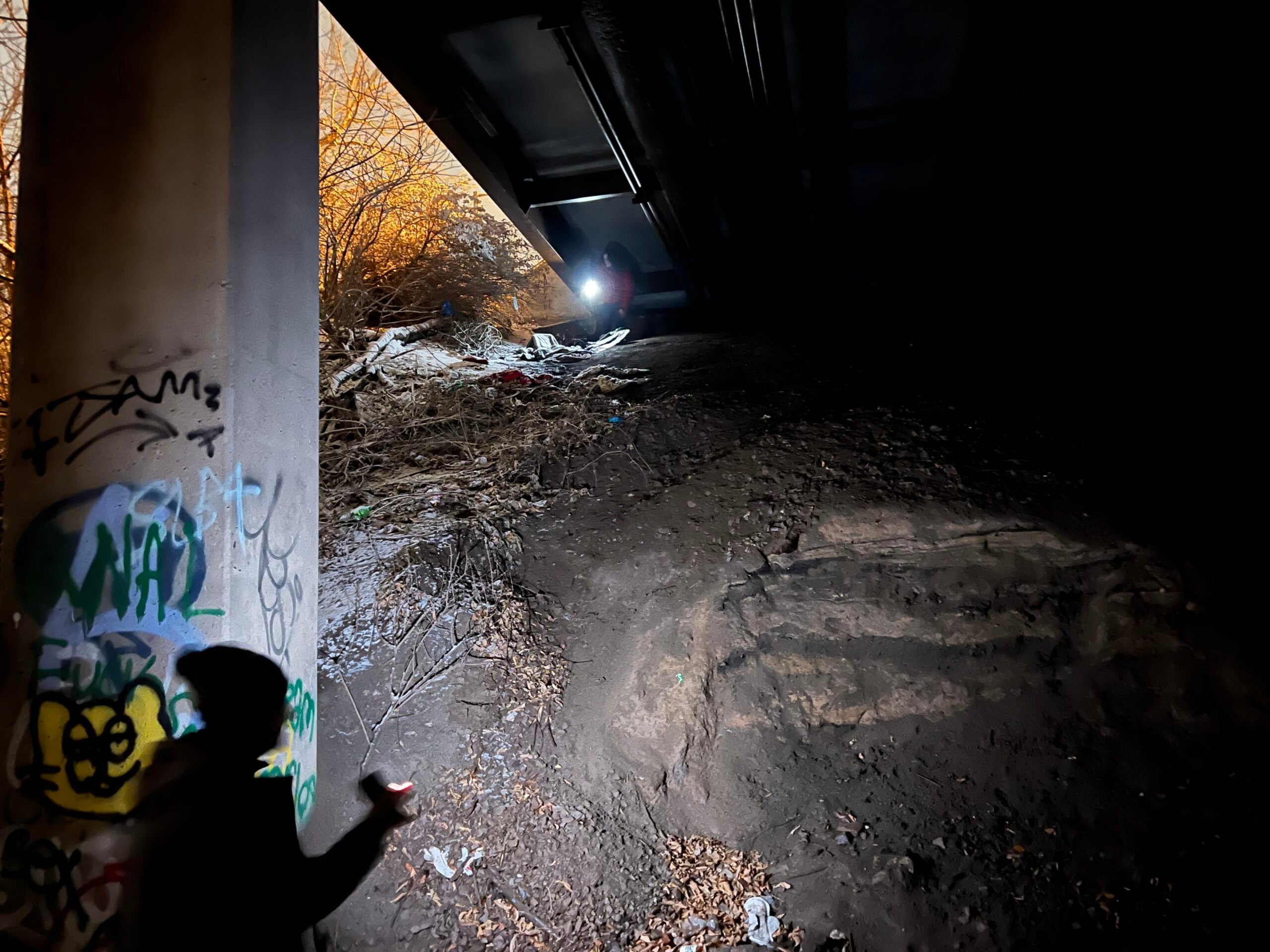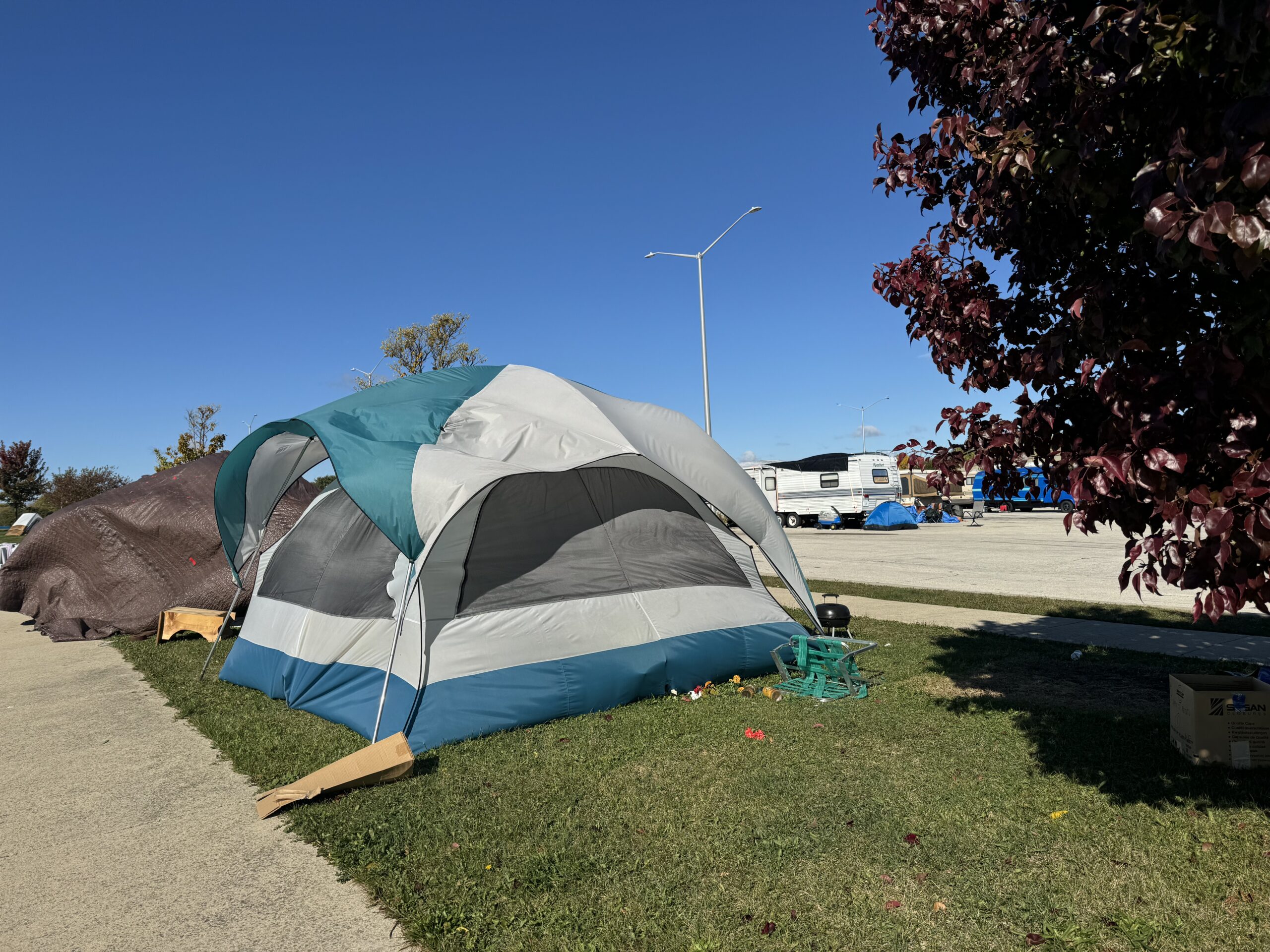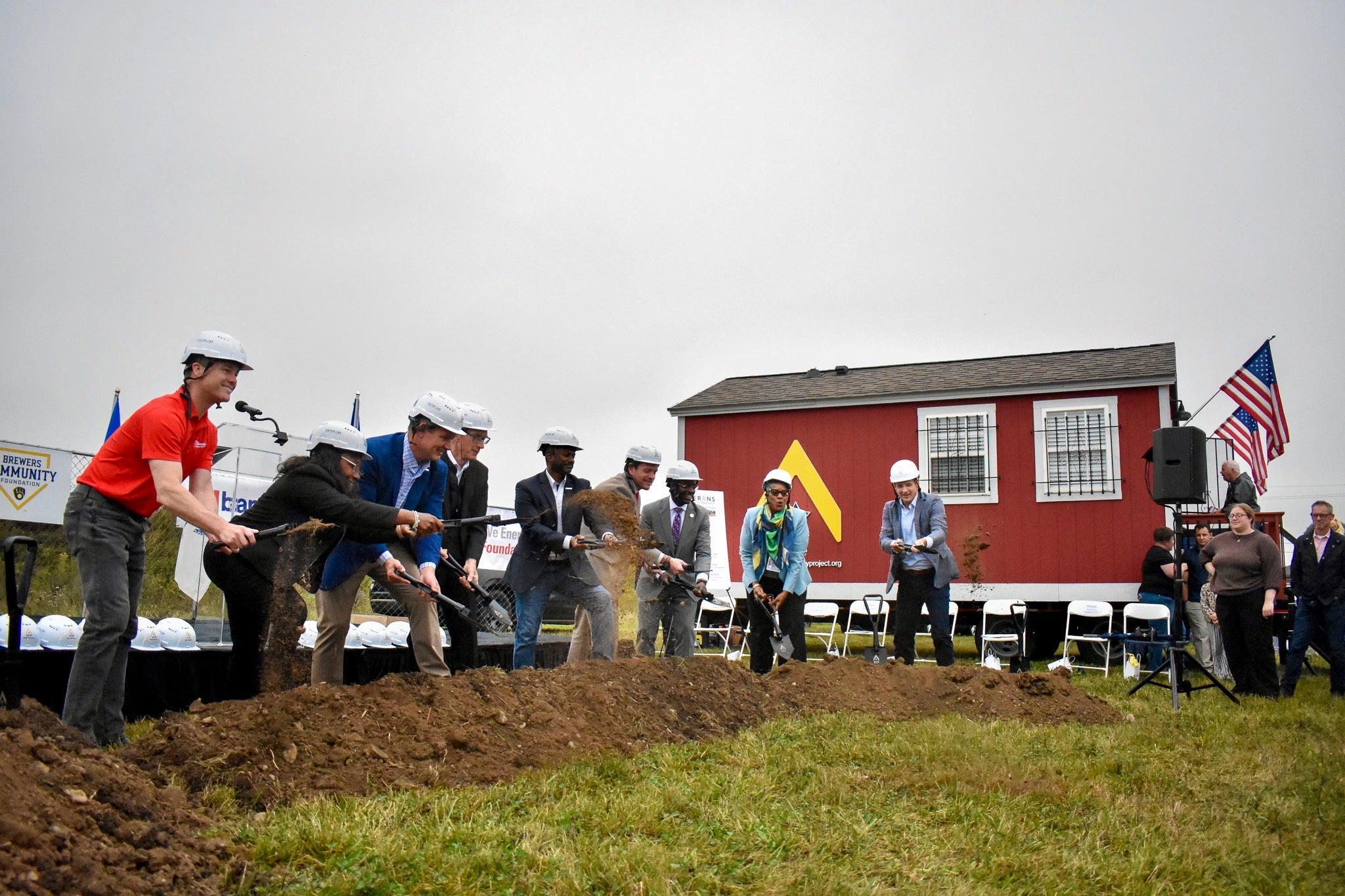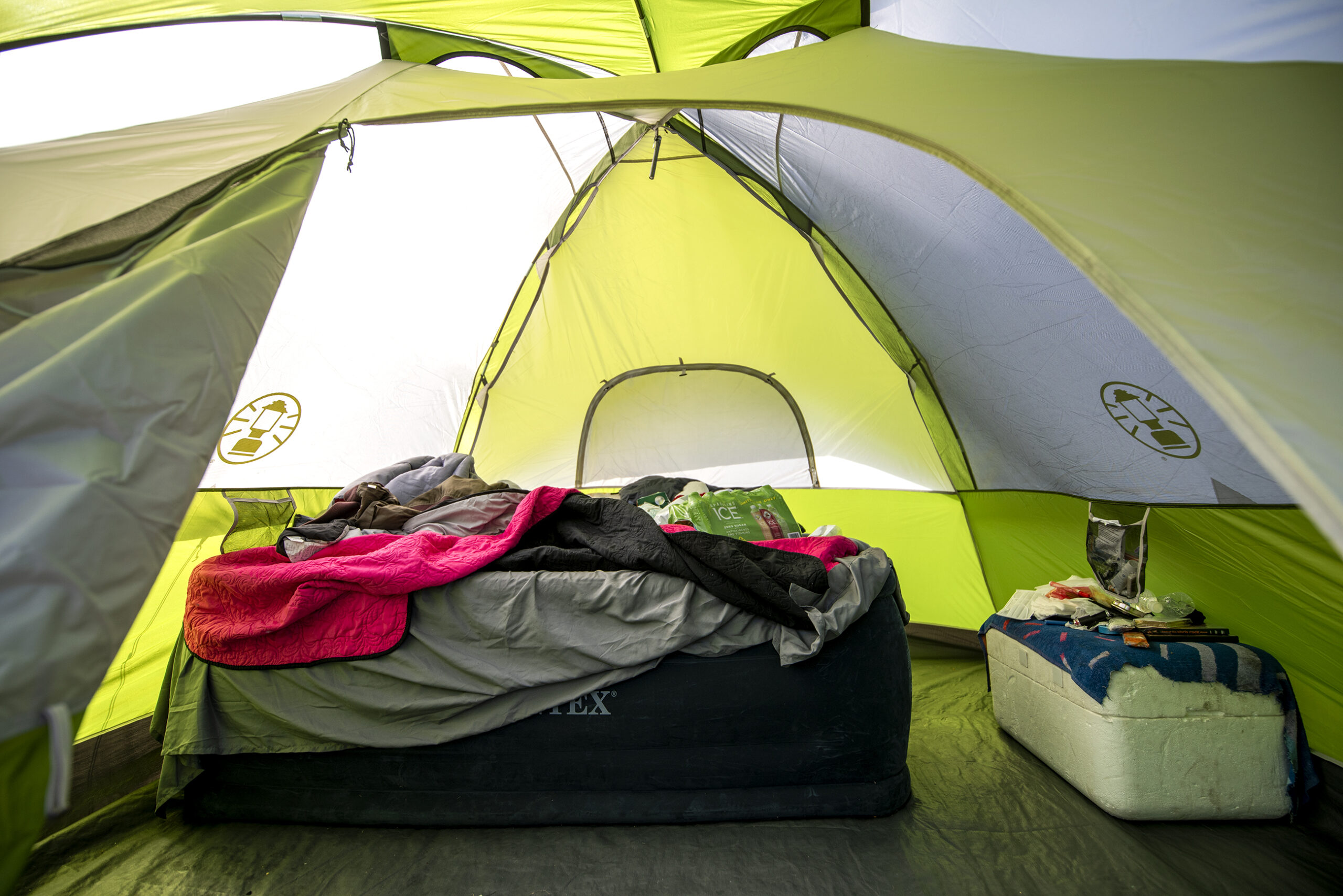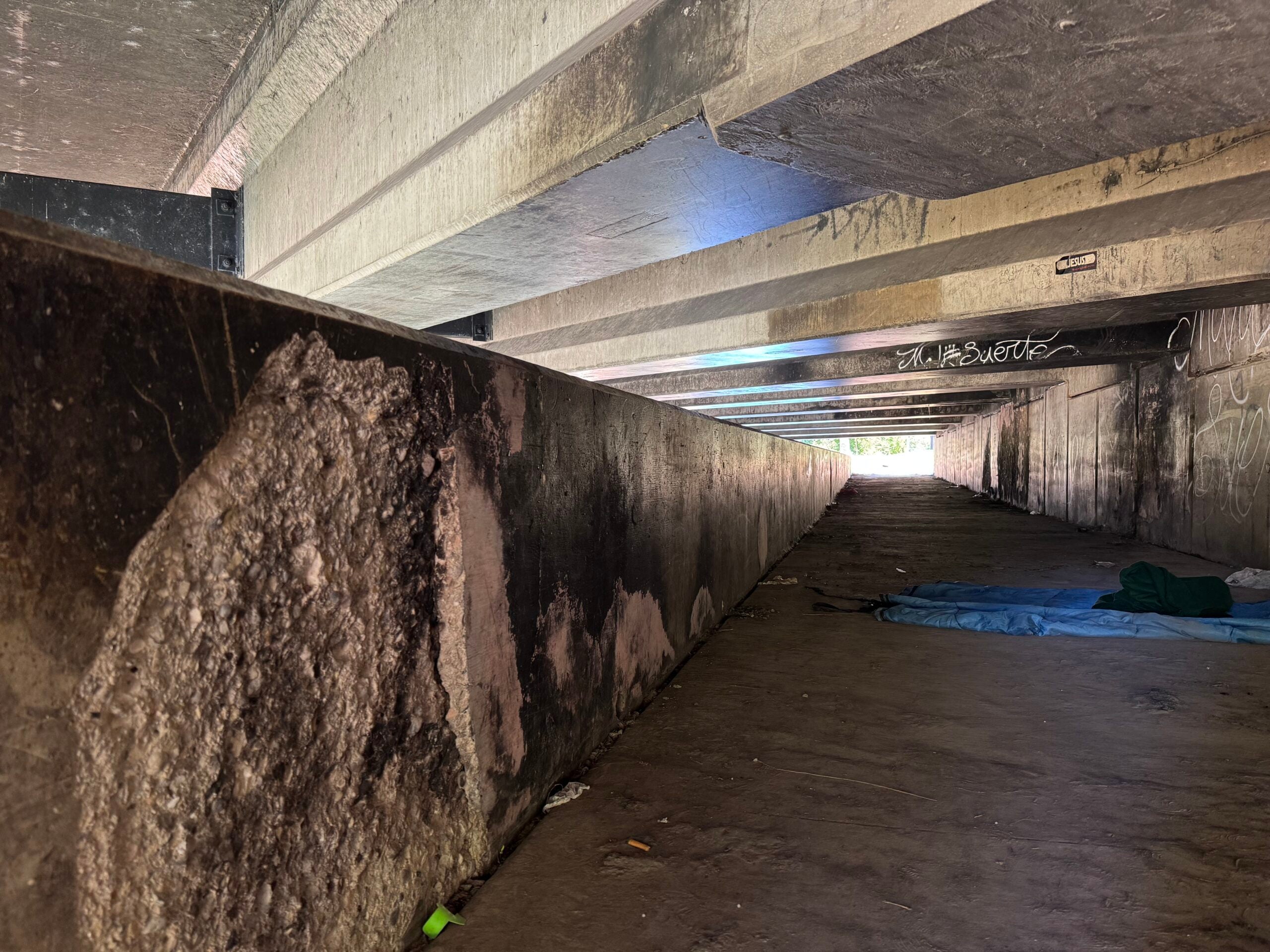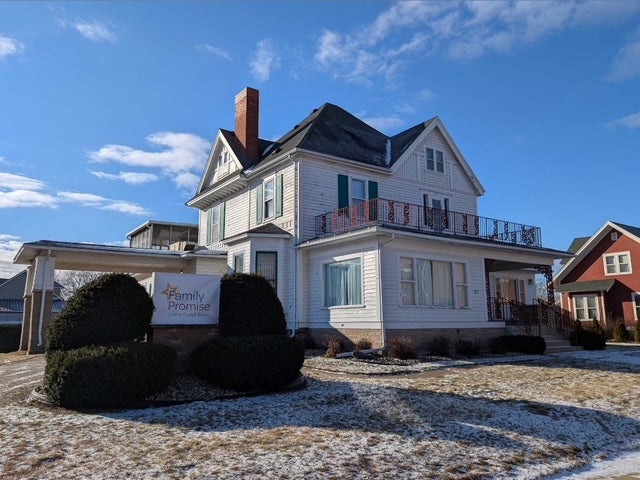Rachel Wagner is a licensed barber and cosmetologist in Milwaukee, and for the past two months, she’s been living out of her car at a park and ride after she lost her job.
“Unfortunate situations happen, and I’ve never in my life said I want to grow up and live in the streets,” said Wagner, who grew up in the Bay View neighborhood. “I’m 40 years old now. This is definitely not the time I want to start living in a car.”
Wagner isn’t alone. In the last few months, more and more individuals experiencing homelessness have been living at park and rides in Milwaukee County, even forcing a community meeting to discuss the issue last week.
News with a little more humanity
WPR’s “Wisconsin Today” newsletter keeps you connected to the state you love without feeling overwhelmed. No paywall. No agenda. No corporate filter.
In 2022, Milwaukee County had the lowest per-capita count of unsheltered homeless people in the nation, according to the U.S. Department of Housing and Urban Development. But that likely won’t be the case this year, as homeless outreach groups have seen a surge in unsheltered people on the streets.
On Wednesday night, the homeless outreach group Street Angels identified 275 unsheltered people — the highest number of unsheltered people they’ve ever identified in their seven-year history.
“We’re to the point where we’re getting in just as many supplies as we have every other year, but we can’t keep them available for people,” said Eva Welch, co-director of Street Angels. “It’s just been very overwhelming.”
Welch said they’re also seeing more families living in cars and at parks throughout the county.
“We used to not track families because we would see them so rarely unsheltered on the streets, but we added a family dashboard to our tracking system,” she said.
Eric Collins-Dyke, the assistant administrator of supportive housing and homeless services for Milwaukee County, said there has been a “significant” increase in homelessness this year compared to last, especially in the last six months.
That’s partly due to the expiration of federal pandemic relief funds that helped address the immediate needs of people without shelter — including helping individuals stay in hotel rooms while they looked for permanent housing, he said.
The number could also be rising because of rising housing insecurity, an increase in evictions, the lack of affordable housing and ongoing problems that many people are facing with mental health and substance abuse across the area.
Collins-Dyke said there aren’t enough resources available to get people into permanent housing.
“The safety net is just really flimsy,” he said.
Plans for aid
To reverse the trend, Collins-Dyke said the county recently started a housing navigation team that goes out with the homeless outreach team to discuss options for housing.
“That’s been a pretty cool thing to see,” he said.
Thursday, Milwaukee County Executive David Crowley presented his recommended budget to the Milwaukee County Board of Supervisors. It includes an extra $1.5 million for the county’s supportive housing and homeless services team.
“When an individual or family has stable and reliable housing, outcomes greatly improve,” Crowley told the board. “By making this investment upstream, we head off future problems downstream, increasing health, safety and the productivity of Milwaukee County.”
Collins-Dyke said those funds will largely go towards expanding case managers to get people into housing.
The recommended budget — which will be debated and discussed in the coming weeks — also includes $200,000 for housing vouchers for residents leaving the Milwaukee Community Reintegration Center.
“It is our job to ensure that people who enter our facility leave in a better position than when they entered, and helping people find stable housing ensures better outcomes and decreased recidivism rates,” Crowley said.
Collins-Dyke said his team is identifying more people who are working or who have income but still face difficulties finding affordable places to live. Some of those people are living at the Holt Avenue Park and Ride in Milwaukee. During a community meeting Wednesday, some area residents said they feel unsafe because of the increase. Several residents also urged Collins-Dyke and his team to work faster.
“We are trying as quickly as possible to get people indoors,” Collins-Dyke said during that meeting.
Wagner, for now, said she’s just trying to take it day-by-day, and is hoping to get a new job soon.
“Personally, I just need understanding. I am just trying to get by. I don’t need to be thrown into a stereotype and basically cut off from the world,” she said. “I’m still a citizen.”
Nationally, homelessness has been on the rise since 2017 and has risen 6 percent since that time, according to the National Alliance to End Homelessness. That alliance said around 4,775 people in Wisconsin are currently experiencing homelessness.
In January, Milwaukee County performed its point-in-time count, which captures a snapshot of how many homeless are on the streets on one night of the year. Those numbers have not been released yet.
Wisconsin Public Radio, © Copyright 2025, Board of Regents of the University of Wisconsin System and Wisconsin Educational Communications Board.

